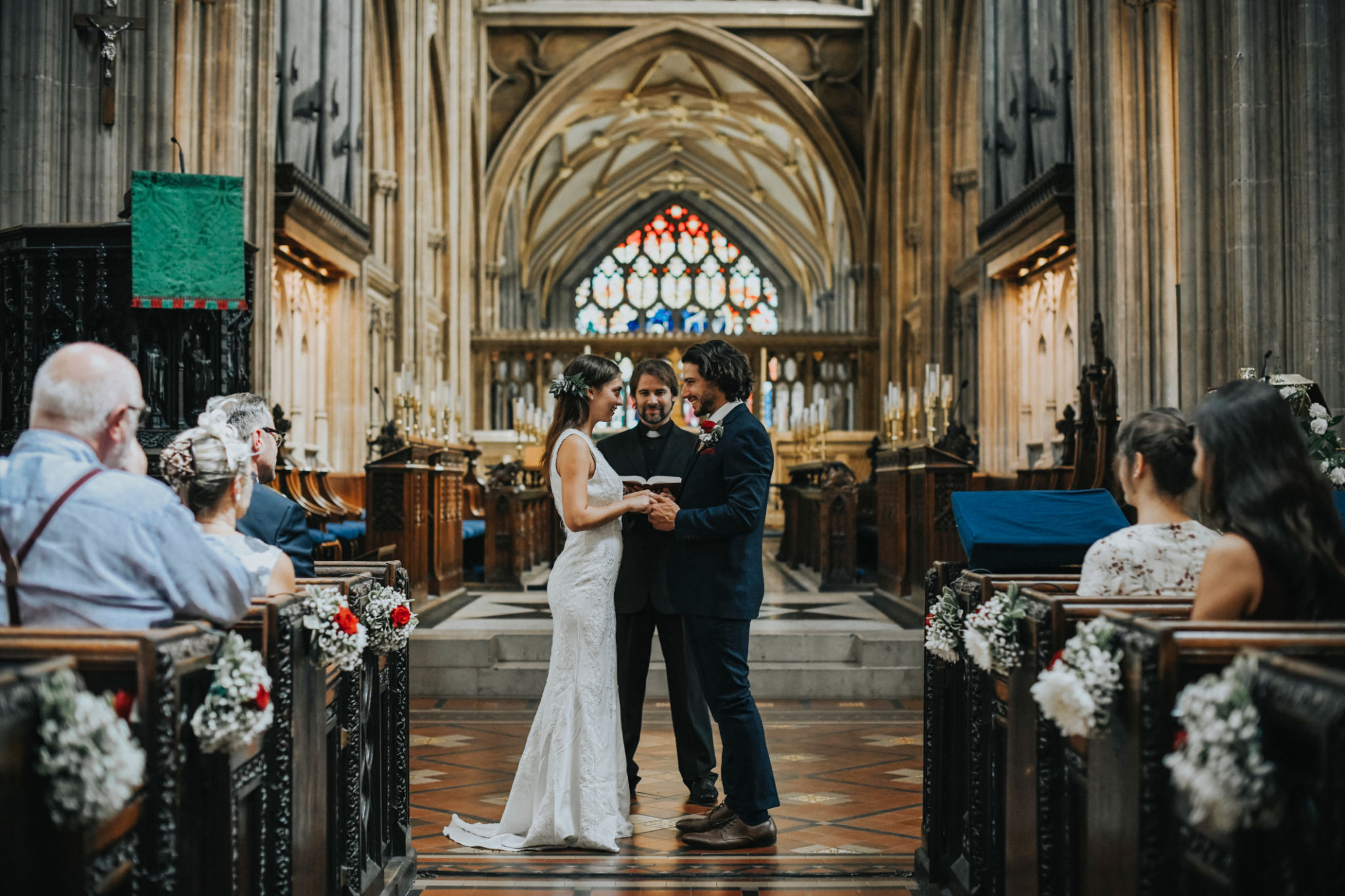Common Misconceptions About Wedding Officiants Debunked
Understanding the Role of a Wedding Officiant
When it comes to planning a wedding, the role of the officiant is often misunderstood. Many assume that officiants simply show up on the big day to conduct the ceremony. However, their responsibilities extend far beyond this singular moment. Understanding the true role of a wedding officiant can help couples appreciate their significance in creating a meaningful ceremony.

Misconception #1: Anyone Can Be a Wedding Officiant
One common misconception is that anyone can easily become a wedding officiant. While it's true that some jurisdictions allow friends or family members to officiate weddings, professional officiants bring a wealth of experience and expertise to the table. They are well-versed in different types of ceremonies, whether religious, secular, or personalized, ensuring that every aspect aligns with the couple's vision.
Professional officiants often undergo training and certification to hone their skills. This preparation enables them to handle unexpected situations gracefully and keep the ceremony on track, providing reassurance to nervous couples.
Misconception #2: Officiants Only Read from a Script
Another misconception is that officiants merely read from a script, delivering a generic ceremony. In reality, skilled officiants personalize each ceremony to reflect the couple's unique love story and values. They work closely with couples to craft vows, select meaningful readings, and incorporate special rituals or traditions.

This customization ensures that the ceremony resonates with the couple and their guests, creating a memorable experience. Officiants often spend hours preparing for each ceremony, taking the time to understand the couple's journey and translating it into words that capture their essence.
Misconception #3: Officiants Are Solely Ceremony Conductors
Many believe that an officiant's role is limited to conducting the ceremony. However, they often serve as guides and advisors throughout the wedding planning process. From offering advice on ceremony structure to assisting with legal paperwork and marriage licenses, officiants play a crucial role in ensuring everything runs smoothly.
Additionally, officiants can provide support during rehearsal, helping to organize the processional and recessional, answer questions, and ease any pre-ceremony jitters. Their presence offers peace of mind, allowing couples to focus on enjoying their special day.

Misconception #4: All Officiants Are Alike
Finally, it's important to recognize that not all officiants are alike. Each brings their unique style, personality, and approach to a wedding ceremony. Couples should take the time to meet with potential officiants to find someone who resonates with them personally and aligns with their vision for the ceremony.
Choosing the right officiant can make all the difference in creating a heartfelt and authentic celebration of love. By dispelling these misconceptions, couples can appreciate the profound impact a dedicated officiant can have on their wedding day.